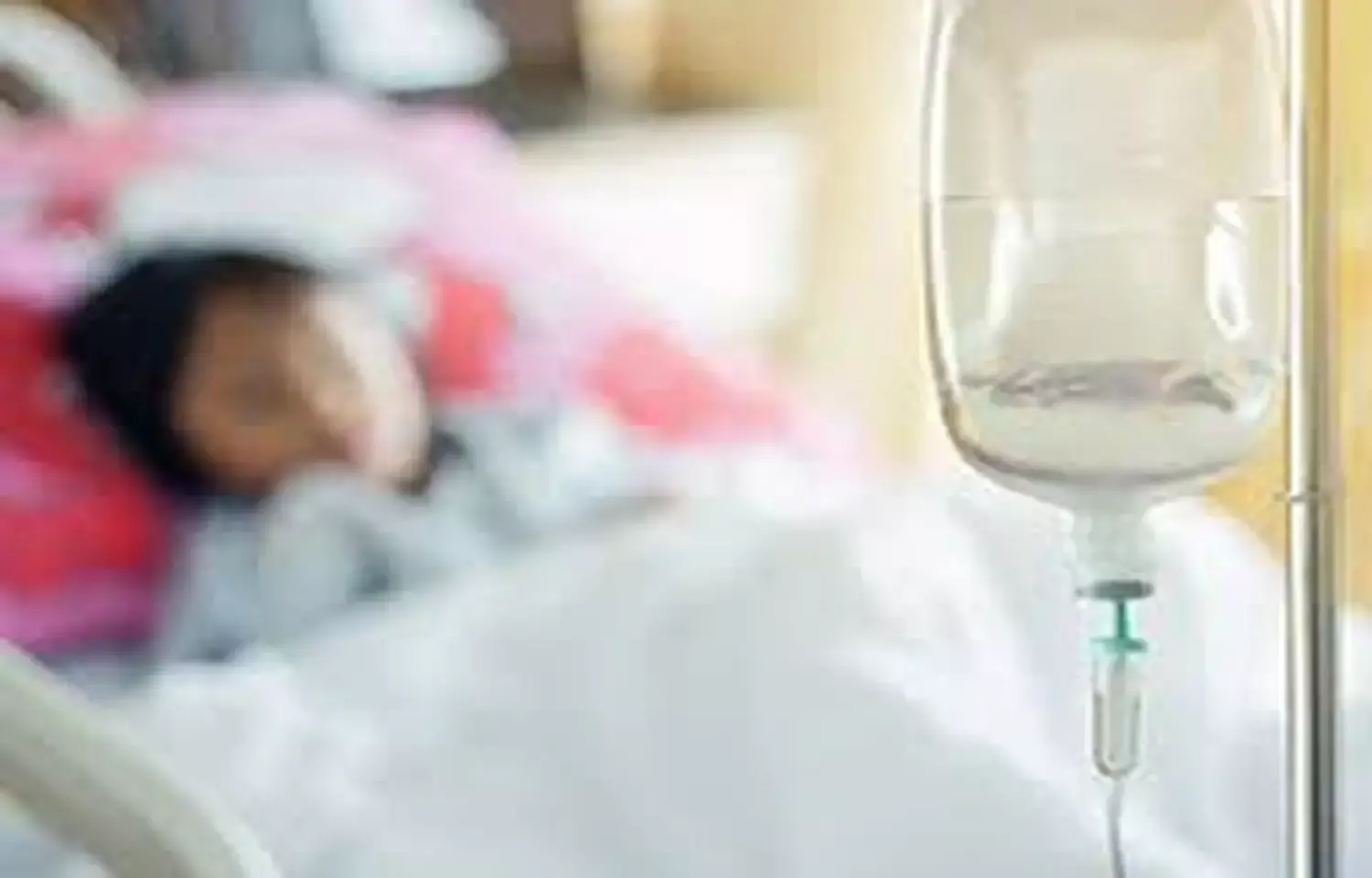- Home
- Medical news & Guidelines
- Anesthesiology
- Cardiology and CTVS
- Critical Care
- Dentistry
- Dermatology
- Diabetes and Endocrinology
- ENT
- Gastroenterology
- Medicine
- Nephrology
- Neurology
- Obstretics-Gynaecology
- Oncology
- Ophthalmology
- Orthopaedics
- Pediatrics-Neonatology
- Psychiatry
- Pulmonology
- Radiology
- Surgery
- Urology
- Laboratory Medicine
- Diet
- Nursing
- Paramedical
- Physiotherapy
- Health news
- Fact Check
- Bone Health Fact Check
- Brain Health Fact Check
- Cancer Related Fact Check
- Child Care Fact Check
- Dental and oral health fact check
- Diabetes and metabolic health fact check
- Diet and Nutrition Fact Check
- Eye and ENT Care Fact Check
- Fitness fact check
- Gut health fact check
- Heart health fact check
- Kidney health fact check
- Medical education fact check
- Men's health fact check
- Respiratory fact check
- Skin and hair care fact check
- Vaccine and Immunization fact check
- Women's health fact check
- AYUSH
- State News
- Andaman and Nicobar Islands
- Andhra Pradesh
- Arunachal Pradesh
- Assam
- Bihar
- Chandigarh
- Chattisgarh
- Dadra and Nagar Haveli
- Daman and Diu
- Delhi
- Goa
- Gujarat
- Haryana
- Himachal Pradesh
- Jammu & Kashmir
- Jharkhand
- Karnataka
- Kerala
- Ladakh
- Lakshadweep
- Madhya Pradesh
- Maharashtra
- Manipur
- Meghalaya
- Mizoram
- Nagaland
- Odisha
- Puducherry
- Punjab
- Rajasthan
- Sikkim
- Tamil Nadu
- Telangana
- Tripura
- Uttar Pradesh
- Uttrakhand
- West Bengal
- Medical Education
- Industry
Use of plasmalike isotonic fluids may be harmful for acutely ill children: JAMA

Finland: The use of commercially available plasmalike isotonic fluids for fluid therapy in acutely ill children increases the risk for electrolyte disorders, mostly due to hypokalemia, suggests a recent study. The findings of the study, published in the journal JAMA Pediatrics, suggest that the isotonic fluids without potassium are not optimal for fluid therapy in acutely ill children.
Currently, the use of isotonic fluid therapy is recommended in children but there is not much evidence of optimal fluid therapy in acutely ill children. Considering the same, Saara Lehtiranta, Oulu University Hospital, Oulu, Finland, and colleagues evaluated the risk for electrolyte disorders including hypokalemia, hypernatremia, and hyponatremia, and the risk of fluid retention in acutely ill children receiving commercially available plasmalike isotonic fluid therapy.
This unblinded, randomized clinical pragmatic trial included 614 subjects (aged 6 months to 12 years of age) who required hospitalization due to an acute illness, and needed IV fluid therapy. Subjects with following parameters were excluded; those with plasma sodium concentration of less than 130 mmol/L or greater than 150 mmol/L on admission, a plasma potassium concentration of less than 3.0 mmol/L on admission; clinical need of fluid therapy with 10% glucose solution; a history of diabetes, diabetic ketoacidosis, or diabetes insipidus; a need for renal replacement therapy; severe liver disease; pediatric cancer requiring protocol-determined chemotherapy hydration; and inborn errors of metabolism.
All outcomes and samples size were prespecified except those clearly marked as exploratory post hoc analyses. All analyses were intention to treat.
The included children were randomized to receive commercially available plasmalike isotonic fluid therapy (140 mmol/L of sodium and 5 mmol/L potassium in 5% dextrose) or moderately hypotonic fluid therapy (80 mmol/L sodium and 20 mmol/L potassium in 5% dextrose).
The primary outcome was the proportion of children with any clinically significant electrolyte disorder, defined as hypokalemia less than 3.5 mmol/L, hypernatremia greater than 148 mmol/L, or hyponatremia less than 132 mmol/L during hospitalization due to acute illness.
Key findings of the study include:
- Clinically significant electrolyte disorder was more common in children receiving plasmalike isotonic fluid therapy (61 of 308 patients [20%]) compared with those receiving moderately hypotonic fluid therapy (9 of 306 patients [2.9%]).
- The risk of developing electrolyte disorder was 6.7-fold greater in children receiving isotonic fluid therapy.
- Hypokalemia developed in 57 patients (19%) and hypernatremia developed in 4 patients (1.3%) receiving plasmalike isotonic fluid therapy.
- Weight change was greater in children receiving isotonic, plasmalike fluid therapy compared with those receiving mildly hypotonic fluids (mean weight gain, 279 vs 195 g).
"In this randomized clinical trial, commercially available plasmalike isotonic fluid therapy markedly increased the risk for clinically significant electrolyte disorders, mostly due to hypokalemia, in acutely ill children compared with previously widely used moderately hypotonic fluid therapy containing 20 mmol/L of potassium," wrote the authors.
"Risk of Electrolyte Disorders in Acutely Ill Children Receiving Commercially Available Plasmalike Isotonic Fluids: A Randomized Clinical Trial," is published in the journal JAMA Pediatrics.
DOI: https://jamanetwork.com/journals/jamapediatrics/article-abstract/2772182
Dr Kamal Kant Kohli-MBBS, DTCD- a chest specialist with more than 30 years of practice and a flair for writing clinical articles, Dr Kamal Kant Kohli joined Medical Dialogues as a Chief Editor of Medical News. Besides writing articles, as an editor, he proofreads and verifies all the medical content published on Medical Dialogues including those coming from journals, studies,medical conferences,guidelines etc. Email: drkohli@medicaldialogues.in. Contact no. 011-43720751


